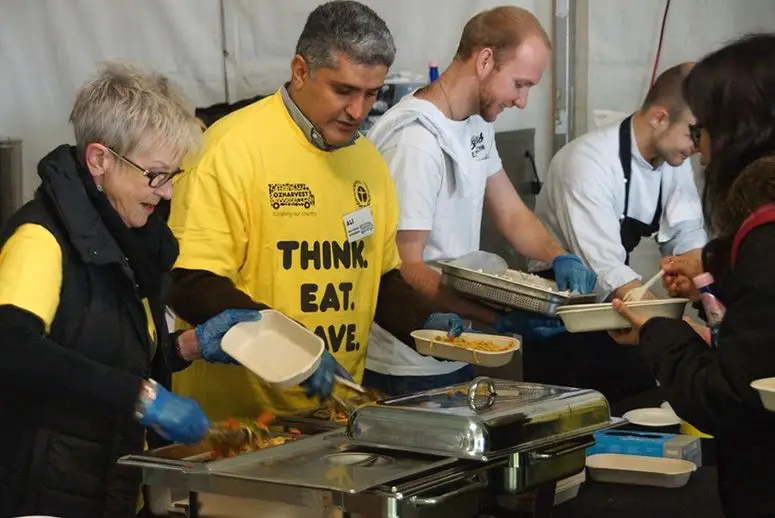Nowadays most air travelers are lucky to get a pack of salted pretzels to snack on during a flight. For folks willing to pony up the cash for first-class tickets, the menu options might be upgraded to baked salmon, mashed potatoes, and roasted vegetables. But if a flight gets canceled or changed, all those premium—and perishable—food items end up being chucked in an airport Dumpster.
That’s why OzHarvest, an Australia-based food rescue and redistribution organization, has begun collecting uneaten food from airlines that operate out of Brisbane Airport. The organization’s drivers gather extra fruit, cookies, sandwiches, or hot meals from canceled or changed flights. They donate the items within two hours of pickup to local charities that feed hungry individuals.
“Collecting and redistributing food is essential to helping to eliminate both food waste and hunger,” Ronni Kahn, the CEO and founder of OzHarvest, told TakePart. “In Australia, enough food is produced to feed 60 million people, yet 2 million people still rely on food relief every year.”

Volunteers gather anywhere from 441 to 882 pounds of food each day from airlines at the airport. The organization also works with airlines to try to reduce food waste on flights by keeping track of how many leftover meals they donate. Extra meals are prepared for each flight, but they don’t always make it on board or get distributed to passengers.
Although its airport operations are focused on Brisbane, the organization, which was founded in 2004, also works with other businesses across Australia to gather food before it’s thrown in the garbage.
“OzHarvest collects quality surplus food from over 2,000 businesses, including supermarkets, cafés, restaurants, businesses, airports, airlines, and catering companies nationally,” Kahn said. “These partnerships involve an incredible amount of work and are constantly looking at innovative ways to reduce waste or excess food along the supply chain.”
Kahn said that since it was founded, OzHarvest has kept about 37.5 million pounds of surplus food from being trashed in landfills across Australia. As a result, its partner charities have delivered more than 50 million meals to people in need.

“OzHarvest looks at minimizing food waste from a range of commercial outlets,” she said. “Airports are one of the many places that quality surplus food is collected from every day.”
Food waste isn’t just a problem on airlines or in Australia. One-third of all food produced globally, about 1.3 billion tons, is lost or wasted annually, according to the United Nations Environment Programme. In the U.S. alone, it is estimated that more than 30 percent of edible food goes to waste, costing about $165 billion.
Kahn said cutting down on food waste will require a national effort and should be a goal for every individual, not just large companies. She hopes people will support OzHarvest’s efforts by donating time, money, or food. For every $1 donated, two meals can be delivered.
“Reducing food waste is something everyone can do,” Kahn said. “At home, there are some simple changes that can make a big difference to the amount of food wasted in households: shopping to a list, checking the food in your fridge, using your senses rather than food labels, and loving your leftovers.”

Article Source: Takepart



